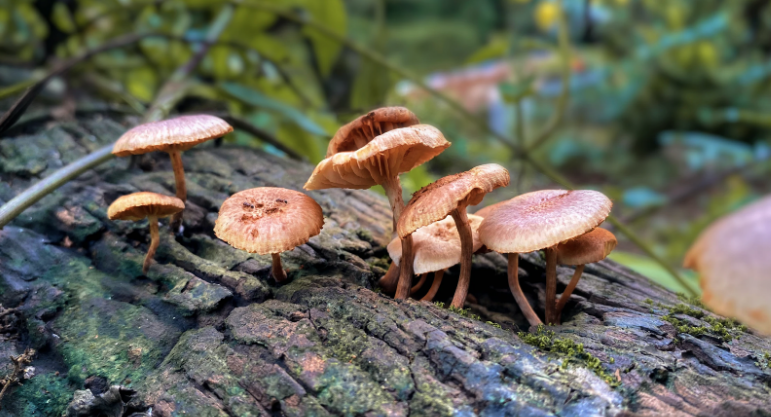"Magic Mushroom" Ingredient as a Possible Treatment for Depression
- icshealthsciencejournal

- Nov 8, 2020
- 2 min read
Updated: Nov 13, 2020
"Magic Mushroom" Ingredient as a Possible Treatment for Depression
Written By: Kandharika Bamrungketudom
November 8, 2020
In a study which was conducted by John Hopkins Medicine researchers and was published on November 4th in JAMA Psychiatry, a compound found in “magic mushroom” was used to treat adults with major depression. The study yielded some significant results, showing that those who were given the compound from the magic mushroom along with psychotherapy were able to improve four times greater than what would have been if traditional antidepressants were to be used.
This compound is known as psilocybin, and can be obtained from hallucinogenic mushrooms, which are sometimes referred to as “magic mushroom.” Its effects are similar to that of LSD, producing visual and auditory hallucinations when ingested. As of now, psilocybin is not yet widely approved as a form of medical treatment but has been legalized in the state of Oregon for mental health treatment in supervised settings.
This study included 24 participants who experienced long-term depression (around two years) and gave up antidepressants for the study. The participants were divided into two groups: the first containing 13 participants who received psilocybin treatment immediately and the other containing 11 participants who received treatment eight weeks later. This treatment included 2 doses of psilocybin given two weeks apart along with further therapy sessions which lasted around five hours.
The participants rated their symptoms according to the GRID Hamilton Depression Rating Scale before the treatment, one week after the treatment, and again three weeks later. The higher numbers on this scale (greater than 24) represent severe depression, 17-23 represent moderate depression, 8-16 mild depression and 7 or less represent no depression. The average number reported before treatment was 23, but dropped to 8 after the treatment. The patients also showed a substantial decrease in their depression symptoms.
The mechanisms of how psilocybin might affect the brain aren’t completely understood, but researchers came up with two possible explanations. Firstly, the compound allows depressed patients to have an emotional release from their intrusive thoughts. Secondly, the compound stimulates the release of serotonin, a neurotransmitter that regulates mood, behavior, memory, and sexual function.
Although this treatment was called a “game-changer” by Alan Davis, Ph.D., who is an assistant professor of psychiatry and behavioral sciences at the John Hopkins School of Medicine, the results of this study cannot yet produce definite conclusions of the effects of psilocybin. For one thing, this study did not include a long-term follow-up on the participants and therefore the long-term effects are unknown. Also, the effects of the treatment could be due to other factors other than the compound, since the participants know they are testing the effects of the compound and are given care which was designed to put patients at ease.
A larger study in the future would be able to provide more information about the usage of psilocybin as a treatment for mental health illness.







Comments